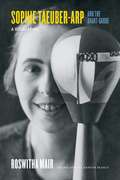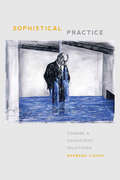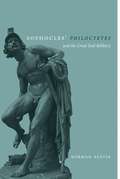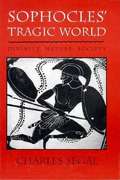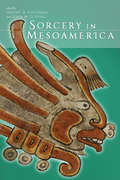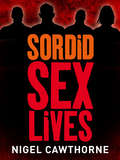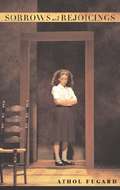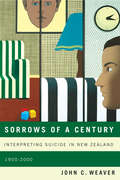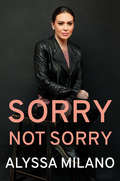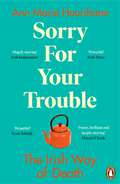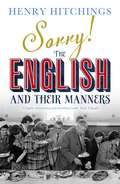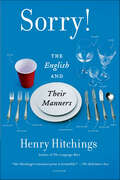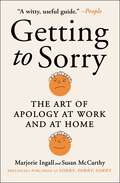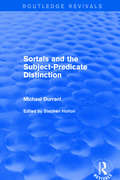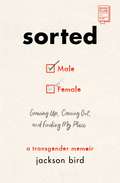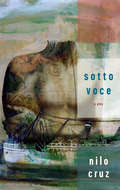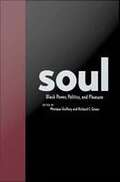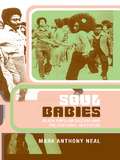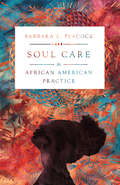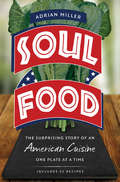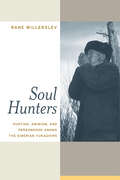- Table View
- List View
Sophie Taeuber-Arp and the Avant-Garde: A Biography
by Damion Searls Roswitha MairSophie Taeuber-Arp was a quiet innovator whose fame has too often been yoked to that of her husband, Jean Arp. Over time, however, she has slowly come to be seen as one of the foremost abstract artists and designers of the twentieth century. The Swiss-born Taeuber-Arp had a front row seat to the first wave of Dadaism and was, along with Mondrian and Malevich, a pioneer of Constructivism. Her singular artwork incorporated painting, sculpture, dance, fiber arts, and architecture, as hers was one of the first oeuvres to successfully bridge the divide between fine and functional art. Now Roswitha Mair has brought us the first biography of this unique polymath, illuminating not just Tauber-Arp’s own life and work, but also the various milieux and movements in which she traveled. No fan of the Dadaists and their legacy will want to miss this first English-language translation.
Sophistical Practice: Toward a Consistent Relativism
by Barbara CassinSophistics is the paradigm of a discourse that does things with words. It is not pure rhetoric, as Plato wants us to believe, but it provides an alternative to the philosophical mainstream. A sophistic history of philosophy questions the orthodox philosophical history of philosophy: that of ontology and truth in itself.In this book, we discover unusual Presocratics, wreaking havoc with the fetish of true and false. Their logoi perform politics and perform reality. Their sophistic practice can shed crucial light on contemporary events, such as the Truth and Reconciliation Commission in South Africa, where, to quote Desmond Tutu, “words,language, and rhetoric do things,” creating things like the new “rainbow people.” Transitional justice requires a consistent and sustainable relativism: not Truth, but truth for, and enough of the truth for there to be a community.Philosophy itself is about words before it is about concepts. Language manifests itself in reality only as multiplicity; different languages perform different types of worlds; and difficulties of translation are but symptoms of these differences. This desacralized untranslatability undermines and deconstructs the Heideggerian statement that there is a historical language of philosophy that is Greek by essence (being the only language able to say what “is”) and today is German.Sophistical Practice constitutes a major contribution to the debate among philosophical pluralism, unitarism, and pragmatism. It will change how we discuss such words as city, truth, and politics. Philologically and philosophically rethinking the sophistical gesture, relying on performance and translation, it proposes a newparadigm for the human sciences.
Sophocles' Philoctetes and the Great Soul Robbery
by Norman AustinNorman Austin brings both keen insight and a life-long engagement with his subject to this study of Sophocles' late tragedyPhiloctetes, a fifth-century BCE play adapted from an infamous incident during the Trojan War. InSophocles' "Philoctetes" and the Great Soul Robbery, Austin examines the rich layers of text as well as context, situating the play within the historical and political milieu of the eclipse of Athenian power. He presents a study at once of interest to the classical scholar and accessible to the general reader. Though the play, written near the end of Sophocles' career, is not as familiar to modern audiences as his Theban plays,Philoctetesgrapples with issues-social, psychological, and spiritual-that remain as much a part of our lives today as they were for their original Athenian audience.
Sophocles' Tragic World: Divinity, Nature, Society
by Charles SegalIn a series of engagingly written interconnected essays, Segal studies five of Sophocles' seven extant plays: Ajax, Oedipus Tyrannus, Philoctetes, Antigone, and the often neglected Trachinian Women.
Sorcerers of Dobu: The social anthropology of the Dobu Islanders of the Western Pacific
by R. F. FortuneEver since its first publication in 1932, Sorcerers of Dobu has been recognized as one of the great triumphs of anthropological research and interpretation in the field of ethnography. A rich source of information on primitive psychology, the book presents sociological analysis of the complex tribal organisation of the Dobuans. Originally published in 1932
Sorcery in Mesoamerica
by Jeremy D. Coltman John M. D. PohlApproaching sorcery as highly rational and rooted in significant social and cultural values, Sorcery in Mesoamerica examines and reconstructs the original indigenous logic behind it, analyzing manifestations from the Classic Maya to the ethnographic present. While the topic of sorcery and witchcraft in anthropology is well developed in other areas of the world, it has received little academic attention in Mexico and Central America until now. In each chapter, preeminent scholars of ritual and belief ask very different questions about what exactly sorcery is in Mesoamerica. Contributors consider linguistic and visual aspects of sorcery and witchcraft, such as the terminology in Aztec semantics and dictionaries of the Kaqchiquel and K’iche’ Maya. Others explore the practice of sorcery and witchcraft, including the incorporation by indigenous sorcerers in the Mexican highlands of European perspectives and practices into their belief system. Contributors also examine specific deities, entities, and phenomena, such as the pantheistic Nahua spirit entities called forth to assist healers and rain makers, the categorization of Classic Maya Wahy (“co-essence”) beings, the cult of the Aztec goddess Cihuacoatl, and the recurring relationship between female genitalia and the magical conjuring of a centipede throughout Mesoamerica. Placing the Mesoamerican people in a human context—as engaged in a rational and logical system of behavior—Sorcery inMesoamerica is the first comprehensive study of the subject and an invaluable resource for students and scholars of Mesoamerican culture and religion. Contributors: Lilián González Chévez, John F. Chuchiak IV, Jeremy D. Coltman, Roberto Martínez González, Oswaldo Chinchilla Mazariegos, Cecelia F. Klein, Timothy J. Knab, John Monaghan, Jesper Nielsen, John M. D. Pohl, Alan R. Sandstrom, Pamela Effrein Sandstrom, David Stuart
Sordid Sex Lives
by Nigel CawthorneWhat do the rich and famous really get up to behind closed doors? When does sexual passion become sordid perversion? Who are history's most shocking deviants and what are their sex secrets? The pages of this book reveal 45 shocking, scandalous--and often disturbing--stories of promiscuity and sexual perversion throughout the ages. Uncovered here are the orgies of Cleopatra and the incest of the Romans; the darkest fantasies of Michelangelo and the gross indecencies of the Marquis de Sade; as well as the insatiable desires of Rasputin, the degrading fetishes of Adolf Hitler, the unashamed exhibitionism of Tallulah Bankhead and the dirty thrills of Elvis Presley. Sordid Sex Lives offers an insight into the shocking practices in which so many famous men and women have participated in. What motivates these sexual desires? Were they ever considered "normal?" And what happened to those whose filthy secrets were found out? Bursting with real-life accounts, this is the most explicit and shocking account of the sex lives of history's most notorious characters.
Sorgen und wirtschaften: Zur Ökologie sozialer und ökonomischer Daseinsgestaltung
by Wolf Rainer WendtEin Buch zur Notwendigkeit, dass in der globalen Krise sorgend gewirtschaftet werden muss. In dieser Situation bedingen die Sorgen und das Wirtschaften einander. Der Zusammenhang, der beschrieben wird, ist ein vielseitiger und vielschichtiger. Er betrifft die soziale Versorgung, das staatliche Handeln und die Verantwortung von Unternehmen. Alle Akteure sind sorgend und wirtschaftend im ökologischen Rahmen beteiligt an einer Entwicklung, die vor Ort und global dem Leben zuträglich sein soll.
Sorrows and Rejoicings
by Athol Fugard"If there is a more urgent and indispensible playwright in world theatre than South Africa's Athol Fugard, I don't know who it could be."--Jack Kroll, NewsweekOne of the true contemporary masters of the stage, South African playwright Athol Fugard has written one of his most stunning works. Sorrows and Rejoicings explores the legacy of Apartheid on two women--one white, the other black--who on the surface seem to have little in common except for their love of one man, a white poet who is attached to the Karoo land of South Africa. The drama moves between past and present, reliving the poet's despondent years in exile and his eventual return to a new South Africa. With lyrical grace, Fugard once again demonstrates the human struggle to transcend the treacherous injustices of history.South African playwright, actor and director, Athol Fugard is one of the world's leading theatre artists, of whom The New Yorker has said, "A rare playwright, who could be a primary candidate for either the Nobel Prize on Literature or the Nobel Peace Prize."Also available by Athol Fugard: The Road to MeccaPB $11.95 0-930452-79-8 * USA My Children! My Africa!PB $10.95 1-55936-014-3 o USAStatementsPB $10.95 0-930452-61-5 * USA Blood Knot and Other PlaysPB $ 14.95 1-55936-020-8 * USA Valley SongPB $10.95 1-55936-119-0 * USA
Sorrows of a Century
by John WeaverIn Sorrows of a Century, John Weaver describes how personal relationships, work, poverty, war, illness, and legal troubles have driven thousands to despair. His study is set in twentieth-century New Zealand where - in spite of high standards of living and a commitment to social welfare - citizens have experienced the profound losses and stresses of the human condition. Focusing on New Zealand because it has the most comprehensive and accessible coroners' records, Weaver analyzes a staggering amount of information to determine the social and cultural factors that contribute to suicide rates. He examines the country's investigations into sudden deaths, places them within the context of major events and societal changes, and turns to witnesses' statements, suicide notes, and medical records to remark on prevention strategies. His extensive survey of twelve thousand cases also provides an insightful assessment of psychiatry and psychology in the last century. In reviewing the motives and methods of suicide, Weaver points out the complications facing deterrence. Moving beyond the timeless present of the social sciences and the irrationality emphasized in psychology, Sorrows of a Century marshals testimony to highlight the historical context and rational conduct behind suicide.
Sorrows of a Century: Interpreting Suicide in New Zealand, 1900-2000 (McGill-Queen's/Associated Medical Services Studies in the History of Medicine, Health, and Society #40)
by John C. WeaverIn Sorrows of a Century, John Weaver describes how personal relationships, work, poverty, war, illness, and legal troubles have driven thousands to despair. His study is set in twentieth-century New Zealand where - in spite of high standards of living and a commitment to social welfare - citizens have experienced the profound losses and stresses of the human condition. Focusing on New Zealand because it has the most comprehensive and accessible coroners' records, Weaver analyzes a staggering amount of information to determine the social and cultural factors that contribute to suicide rates. He examines the country's investigations into sudden deaths, places them within the context of major events and societal changes, and turns to witnesses' statements, suicide notes, and medical records to remark on prevention strategies. His extensive survey of twelve thousand cases also provides an insightful assessment of psychiatry and psychology in the last century. In reviewing the motives and methods of suicide, Weaver points out the complications facing deterrence. Moving beyond the timeless present of the social sciences and the irrationality emphasized in psychology, Sorrows of a Century marshals testimony to highlight the historical context and rational conduct behind suicide.
Sorry Not Sorry
by Alyssa MilanoAlyssa Milano&’s sharply observed, uproarious, and deeply intimate ode to the life she has lived and the issues that matter most. Alyssa Milano, actress and activist, delivers here a collection of powerful personal essays that get to the heart of her life, career, and all-out humanitarianism. These essays are unvarnished and elegant, funny and heartbreaking, and utterly real. A timely book that shows in almost real time the importance of taking care of others, it also gives a gut-punch-level wake-up call in an era where the noise is a distraction from what really needs to happen, if we want to live in a better world. These are stories of growing up in celebrity, of family and of friends, of connections and breaking apart. They have teeth on the page and come from the heart. And they are stories that offer a direct line into the thoughts and life of one of the most visible, hard-working humanitarians we have. A bestselling children's book author, Alyssa's finally giving her fans worldwide what they really want to hear directly from her about: the life she has lived, the things she's seen and experienced, and the way she lives in and with the world.
Sorry for Your Trouble: The Irish Way of Death
by Ann Marie HourihaneThe Irish do death differently.Funeral attendance is a solemn duty - but it can also be a big day out, requiring sophisticated crowd control, creative parking solutions and a high-end sound system. Despite having the same basic end-of-life infrastructure as other Western countries, Irish culture handles death with a unique blend of dignified ritual and warm sociability.In Sorry for Your Trouble, Ann Marie Hourihane holds up a mirror to the Irish way of death: the funny bits, the sad bits, and the hard-to-explain bits that tell us so much about who we are. She follows the last weeks of a woman's life in hospice; she witnesses an embalming; she attends inquests; she talks to people working to prevent suicide; she follows the team of specialists working to locate the remains of people 'disappeared' by the IRA; and she visits some of Ireland's most contested graves. She also explores the strange and sometimes surprising histories of Irish death practices, from the traditional wake and ritual lamentations to the busy commerce between anatomists and bodysnatchers. And she goes to funerals, of ordinary and extraordinary people all over the country - including that of her own father. 'I had joined a club,' she writes, 'the club of people who have lost someone very close to them.' And then, with her family, she sets about planning a funeral in the middle of a pandemic.Sorry for Your Trouble sheds fresh, wise and witty light on a key pillar of Irish culture: a vast but strangely underexplored subject. Rich, sparkling and eye-opening, it is one of the best books ever written about Irish life.___________________________'A beautiful, insightful reflection on a very, very peculiar country's approach to the oddest experience of them all' RYAN TUBRIDY'Hugely moving and illuminating. All of life, somehow, is here' TANYA SWEENEY, IRISH INDEPENDENT'Moving, comforting and funny' BUSINESS POST
Sorry! The English and Their Manners: The English And Their Manners
by Henry HitchingsMost of us know a bit about what passes for good manners - holding doors open, sending thank-you notes, no elbows on the table. We certainly know bad manners when we see them. But where has this patchwork of beliefs and behaviours come from? How did manners develop? How do they change? And why do they matter so much to us? In examining our manners, Henry Hitchings delves into the English character and investigates our notions of Englishness. Sorry! presents an amusing, illuminating and quirky audit of English manners. From basic table manners to appropriate sexual conduct, via hospitality, chivalry, faux pas and online etiquette, Hitchings traces the history of our country's customs and courtesies.Putting under the microscope some of our most astute observers of humanity, including Jane Austen and Samuel Pepys, he uses their lives and writings to pry open the often downright peculiar secrets of the English character. Hitchings' blend of history, anthropology and personal journey helps us understand our bizarre and contested cultural baggage - and ourselves.
Sorry!: The English and Their Manners
by Henry HitchingsA humorous and charming investigation into what it really means to have proper mannersMost of us know a bit about what passes for good manners—holding doors open, sending thank-you notes, no elbows on the table—and we certainly know bad manners when we see them. But where has this patchwork of beliefs and behaviors come from? How did manners develop? How do they change? And why do they matter so much? In examining English manners, Henry Hitchings delves into the English character and investigates what it means to be English.Sorry! presents an amusing, illuminating, and quirky audit of British manners. From basic table manners to appropriate sexual conduct, via hospitality, chivalry, faux pas, and online etiquette, Hitchings traces the history of England's customs and courtesies. Putting some of the most astute observers of humanity—including Jane Austen and Samuel Pepys—under the microscope, he uses their lives and writings to pry open the often downright peculiar secrets of the English character. Hitchings's blend of history, anthropology, and personal journey helps us understand the bizarre and contested cultural baggage that goes along with our understanding of what it means to have good manners.
Sorry, Sorry, Sorry: The Case for Good Apologies
by Marjorie Ingall Susan McCarthy&“I&’m sorry, but Sorry, Sorry, Sorry means that you no longer have an excuse for delivering anything other than a pitch-perfect apology. Ingall and McCarthy break down thorny questions…with grace and humor.&” —Peggy Orenstein, bestselling author of Boys & Sex, Girls & Sex, and Cinderella Ate My DaughterIt&’s a truth universally acknowledged that terrible apologies are the worst. We&’ve all been on the receiving end, and oh, how they make us seethe. Horrible public apologies—excuse-laden, victim blame-y, weaselly statements—often go viral instantaneously, whether they&’re from a celebrity, a politician, or a blogger. We all recognize bad apologies when we hear them. So why is it so hard to apologize well? How can we do better? How could they do better? Marjorie Ingall and Susan McCarthy show us the way. Drawing on a deep well of research in psychology, sociology, law, and medicine, they explain why a good apology is hard to find and why it doesn&’t have to be. Alongside their six (and a half)-step formula for apologizing beautifully, Ingall and McCarthy also delve into how to respond to a bad apology; why corporations, celebrities, and governments seldom apologize well; how to teach children to apologize; how gender and race affect both apologies and forgiveness; and most of all, why good apologies are essential, powerful, and restorative. A good apology can do so many things—mend fences, heal wounds, and bring more harmony into ourselves and our society at large. With wit, deep introspection, and laugh-out-loud humor, Ingall and McCarthy&’s guidance will help make the world a better place, one apology at a time.
Sortals and the Subject-predicate Distinction (2001)
by Michael DurrantThis title was first published in 2001. The problem of the subject-predicate distinction has featured centrally in much of modern philosophy of language and philosophical logic, and the distinction is taken as basic or fundamental in modern philosophical logic. Michael Durrant seeks to demonstrate that the distinction should not be taken as basic or fundamental and argues that the reason for it being held to be fundamental is a failure to acknowledge the category and role of the sortal. A sortal is a symbol which furnishes us with a principle for distinguishing and counting particulars (objects) and whick does so in its own right relying on no antecedent principle or method of so distinguishing or counting. This book explores sortals and their relationship to the subject-predicate distinction; arguing that the nature of sortal symbols has been misconstrued in much modern writing in the philosophy of logic by failing to distinguish sortals from names and predicates.
Sorted: Growing Up, Coming Out, and Finding My Place (A Transgender Memoir)
by Jackson BirdAn unflinching and endearing memoir from LGBTQ+ advocate Jackson Bird about how, through a childhood of gender mishaps and an awkward adolescence, he finally sorted things out and came out as a transgender man in his mid-twenties. When Jackson Bird was twenty-five, he came out as transgender to his friends, family, and anyone in the world with an Internet connection. Assigned female at birth and having been raised a girl, he often wondered if he should have been born a boy. Jackson didn’t share this thought with anyone because he didn’t think he could share it with anyone. Growing up in Texas in the 1990s, he had no transgender role models. He barely remembers meeting anyone who was openly gay, let alone being taught that transgender people existed outside of punchlines. Today, Jackson is a writer, YouTuber, and LGBTQ+ advocate living openly and happily as a transgender man. So how did he get here? In this remarkable, educational, and uplifting memoir, Jackson chronicles the ups and downs of growing up gender confused. Illuminated by journal entries spanning childhood to adolescence to today, he candidly recalls the challenges he faced while trying to sort out his gender and sexuality, and worrying about how to interact with the world. With warmth and wit, Jackson also recounts how he navigated the many obstacles and quirks of his transition––like figuring out how to have a chest binder delivered to his NYU dorm room and having an emotional breakdown at a Harry Potter fan convention. From his first shot of testosterone to his eventual top surgery, Jackson lets you in on every part of his journey—taking the time to explain trans terminology and little-known facts about gender and identity along the way. Through his captivating prose, Bird not only sheds light on the many facets of a transgender life, but also demonstrates the power and beauty in being yourself, even when you’re not sure who “yourself” is. Part memoir, part educational guide, Sorted is a frank, humorous narrative of growing up with some unintended baggage.
Sotto Voce (TCG Edition)
by Nilo Cruz"The poetry of Cruz's writing is what those who love his work cite most often about his style, and Sotto Voce has that. Yet it also contains passages that are realistic, whimsical, sensual and heartbreaking. Cruz may be that rarity, a poet of the stage, but he is first and foremost a dramatist."--The Miami HeraldAriel Strauss, a Jewish Cuban man, strives to explore his cultural history when he encounters Bemadette Kahn, an older woman and famed novelist who seeks to relive hers. Cruz's passionate romantic drama takes place in a dreamscape, somewhere between history and memory, present and past. Sotto Voce is a work of dramatic poetry and an imaginative exploration of nostalgia and the ensuing heartbreak it comes with.Nilo Cruz was the first Latino playwright to win the Pulitzer Prize for Drama for his play Anna in the Tropics. His other plays include Night Train to Bolina, Dancing on her Knees, A Park in Our House, Two Sisters and a Piano, The Color of Desire, Hurricane, A Bicycle Country, Hortensia and the Museum of Dreams, Lorca in a Green Dress, Beauty of the Father, and translations of Lorca's Doña Rosita the Spinster and The House of Bernarda Alba. He is the third recipient of the Greenfield Prize, a $30,000 grant to produce new work.
Soul
by Richard Green Monique GuilloryNo other word in the English language is more endemic to contemporary Black American culture and identity than "Soul". Since the 1960s Soul has been frequently used to market and sell music, food, and fashion. However, Soul also refers to a pervasive belief in the capacity of the Black body/spirit to endure the most trying of times in an ongoing struggle for freedom and equality. While some attention has been given to various genre manifestations of Soul-as in Soul music and food-no book has yet fully explored the discursive terrain signified by the term. In this broad-ranging, free-spirited book, a diverse group of writers, artists, and scholars reflect on the ubiquitous but elusive concept of Soul. Topics include: politics and fashion, Blaxploitation films, language, literature, dance, James Brown, and Schoolhouse Rock. Among the contributors are Angela Davis, Manning Marable, Paul Gilroy, Lyle Ashton Harris, Michelle Wallace, Ishmael Reed, Greg Tate, Manthia Diawara, and dream hampton.
Soul Babies: Black Popular Culture and the Post-Soul Aesthetic
by Mark Anthony NealIn Soul Babies, Mark Anthony Neal explains the complexities and contradictions of black life and culture after the end of the Civil Rights era. He traces the emergence of what he calls a "post-soul aesthetic," a transformation of values that marked a profound change in African American thought and experience. Lively and provocative, Soul Babies offers a valuable new way of thinking about black popular culture and the legacy of the sixties.
Soul Care in African American Practice
by Barbara L. PeacockIn the midst of our hectic, overscheduled lives, caring for the soul is imperative.
Soul Food
by Adrian MillerIn this insightful and eclectic history, Adrian Miller delves into the influences, ingredients, and innovations that make up the soul food tradition. Focusing each chapter on the culinary and social history of one dish--such as fried chicken, chitlins, yams, greens, and "red drinks--Miller uncovers how it got on the soul food plate and what it means for African American culture and identity.Miller argues that the story is more complex and surprising than commonly thought. Four centuries in the making, and fusing European, Native American, and West African cuisines, soul food--in all its fried, pork-infused, and sugary glory--is but one aspect of African American culinary heritage. Miller discusses how soul food has become incorporated into American culture and explores its connections to identity politics, bad health raps, and healthier alternatives. This refreshing look at one of America's most celebrated, mythologized, and maligned cuisines is enriched by spirited sidebars, photographs, and 22 recipes.
Soul Hunters: Hunting Animism and Personhood among the Siberian Yukaghirs
by Rane WillerslevThis is an insightful, highly original ethnographic interpretation of the hunting life of the Yukaghirs, a little-known group of indigenous people in the Upper Kolyma region of northeastern Siberia. Basing his study on firsthand experience with Yukaghir hunters, Rane Willerslev focuses on the practical implications of living in a "hall-of-mirrors" world—one inhabited by humans, animals, and spirits, all of whom are understood to be endless mimetic doubles of one another. In this world human beings inhabit a betwixt-and-between state in which their souls are both substance and nonsubstance, both body and soul, both their own individual selves and reincarnated others. Hunters are thus both human and the animals they imitate, which forces them to steer a complicated course between the ability to transcend difference and the necessity of maintaining identity.
